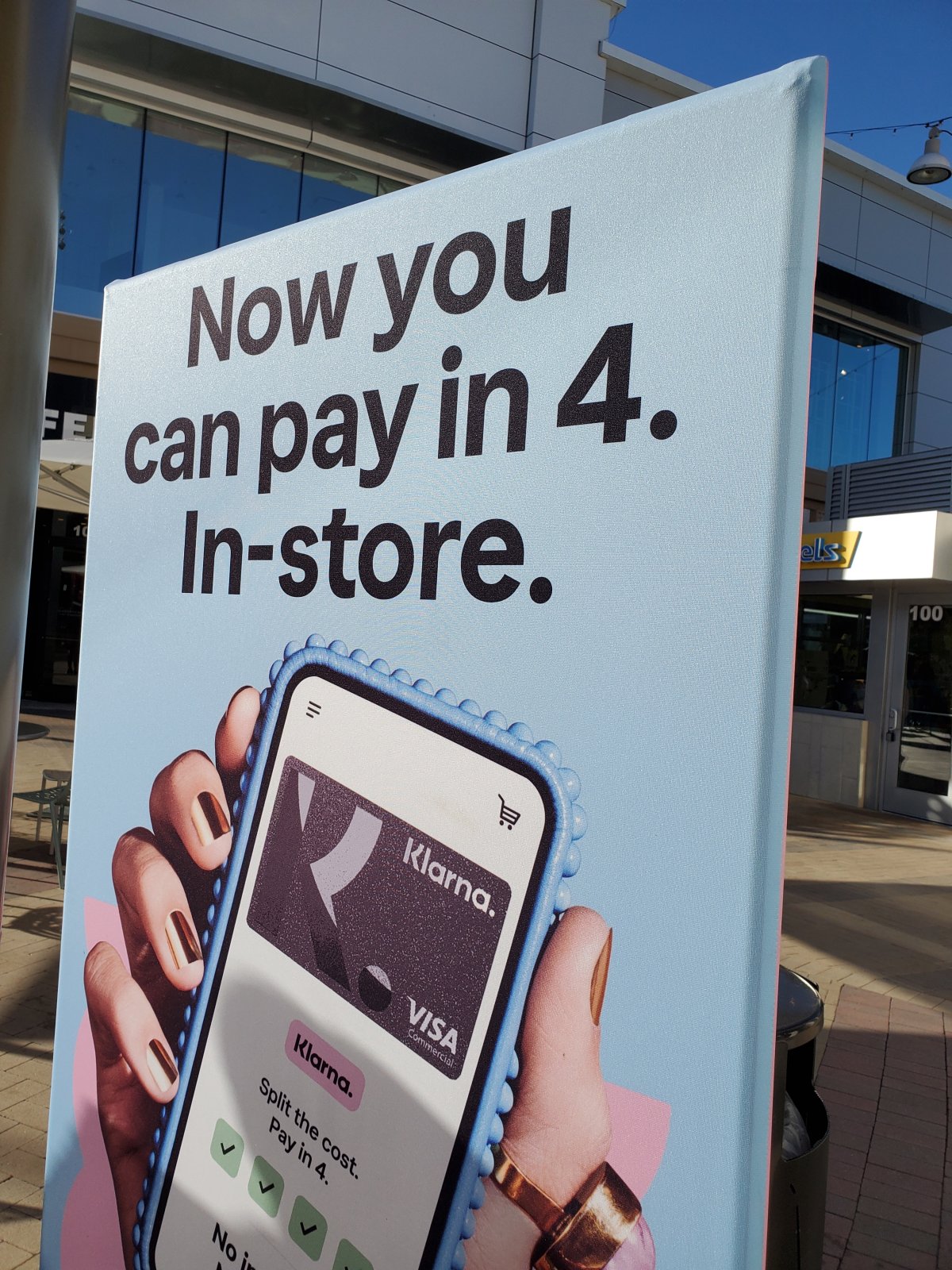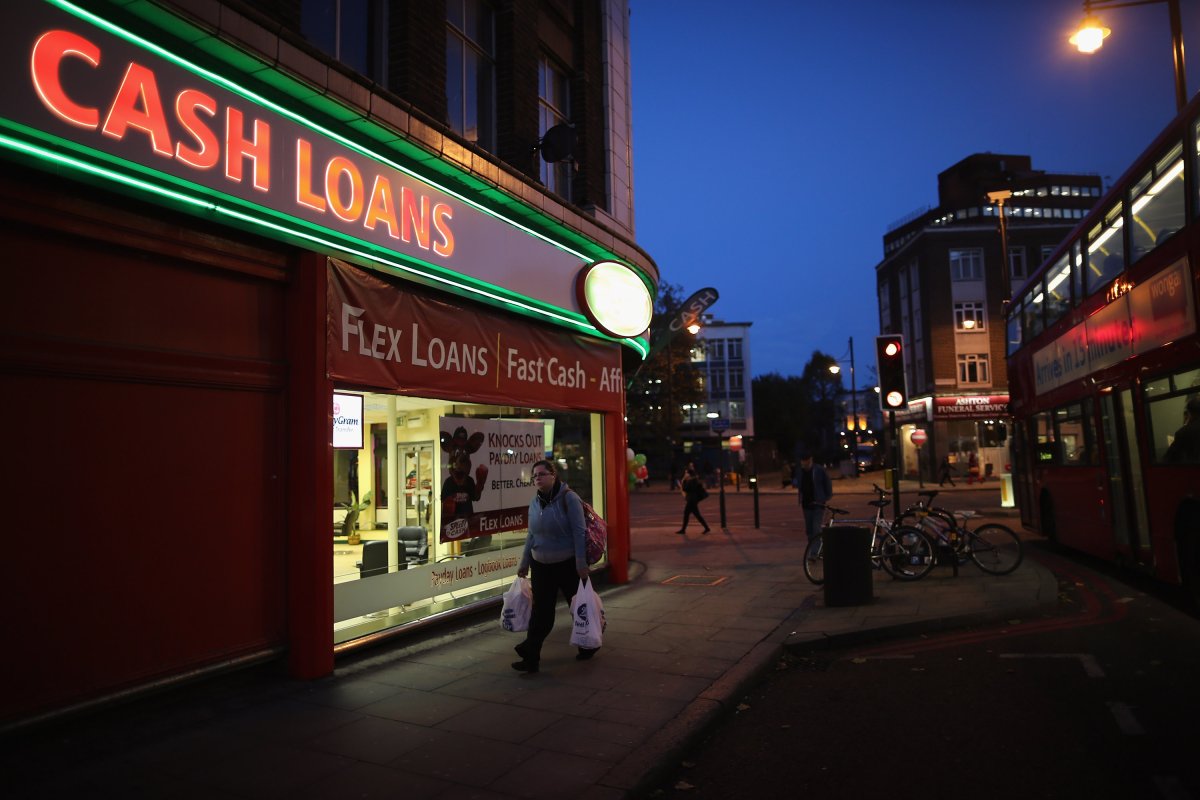Despite inflation's stranglehold, Federal Reserve Chairman Jerome Powell earlier this month highlighted a resilient U.S. economy, buttressed by an unyielding consumer spending spree.
Further backing up the Fed chair's narrative, the U.S. Bureau of Economic Analysis said last week that the U.S. economy expanded nearly 5 percent in the third quarter, higher than the 2.1 percent growth seen in the previous quarter.
As wallets open wider, two fin-tech sectors that may be adding to spending are racing ahead, reshaping the financial landscape: "Buy Now Pay Later" (BNPL) and "Early Wage Access" (EWA).

The BNPL Boom
BNPL services, reminiscent of the popular "layaway" transactions back in the 1980s and 1990s, with companies like Klarna have carved a niche in the post-internet era, championing flexible, short-term installment loans that enable consumers to spread their purchase costs.
It offers them access to what they may not be able to afford now with the promise of paying it back over time; and it's a boon among those with household incomes below $75,000, data from Bankrate shows.
For example, PayPal's Pay-in-4 is utilized by a staggering 57 percent of consumers, and nearly 19 percent of Apple users said they've used Apple Pay Later at some point.
The above examples are not anecdotal. This year, the BNPL industry crested a $155 billion valuation; and during the COVID-19 pandemic, the total value of BNPL loans skyrocketed over 1,000 percent. The global BNPL industry is expected to grow to $744.06 billion by 2027, with a global user base nearing 900 million.

EWA's Rapid Rise
Parallel to the BNPL phenomena, EWA platforms are carving a unique space. Seen as a benevolent alternative to payday loans, the emerging fin-tech solutions offer early paycheck access without the traditional interest charges or credit checks—though most are coupled with fees.
The EWA ecosystem thrives on two principal models. Direct-to-consumer avenues see providers like EarnIn and MoneyLion grant wage advances from $25 to $100 to users who grant bank access. The apps withdraw the "borrowed" money from users via automatic ACH withdrawal at a predetermined date, usually on the user's payday.
Alternatively, employer-backed models, like DailyPay Inc., collaborate with corporations to offer EWA to employees once they've accrued a set dollar amount—much like an employee accruing and using paid time off.
Direct-to-consumer EWA structure deviates from the norm; instead of the usual interest, providers might levy subscription fees, transaction charges (from $1 to $20), or even seek voluntary tips.
In California alone, a hefty 73 percent of users opted to pay voluntary tips on 5.8 million transactions.
Much like the BNPL industry, the adoption of EWA platforms witnessed a staggering escalation. From a near 200 percent increase in accessed pay, reaching $9.5 billion in 2020, brands like publicly traded Dave Inc and MoneyLion Inc saw a spike in originations between 2021 and 2022.
EarnIn, a private EWA company, for instance, advanced $5 billion last year alone. Yet, as with all financial tools, challenges persist.
Last year saw 33 percent of Americans utilizing EWAs, but over 31 percent struggled with timely repayments. Some even had to skip bills or resort to other loan services.
The bigger concern, however, came from a Harvard University study issued in June, which revealed a sobering fact—three-quarters of EWA users rely on the service for mundane, everyday expenses.
That implies not just a temporary financial relief tool but an ingrained dependency, prompting questions about the broader economic implications and true financial stability of Americans.
Uncommon Knowledge
Newsweek is committed to challenging conventional wisdom and finding connections in the search for common ground.
Newsweek is committed to challenging conventional wisdom and finding connections in the search for common ground.
About the writer
Aj Fabino is a Newsweek reporter based in Chicago. His focus is reporting on Economy & Finance. Aj joined Newsweek ... Read more
To read how Newsweek uses AI as a newsroom tool, Click here.








